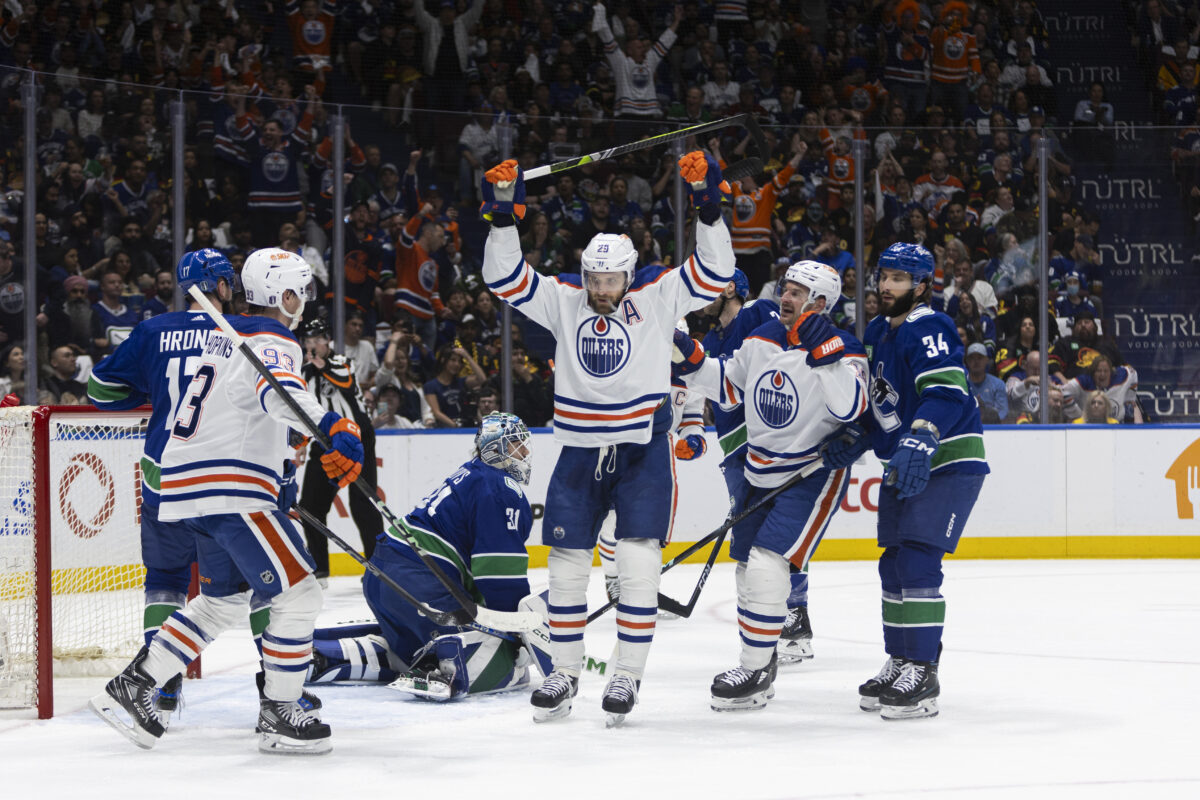The Edmonton Oilers recently locked up one of their cornerstone players, Leon Draisaitl, with an eight-year, $112 million contract extension. This deal cements Draisaitl’s future in Edmonton and raises questions about how such contracts might influence future NHL negotiations.
In the video below, Frank Seravalli from Daily Faceoff joined Ailish Forfar and Justin Cuthbert on The FAN Pregame to discuss the intricacies of Draisaitl’s extension and its potential ripple effects across the league.
The Structure and Timing of Draisaitl’s Contract
Seravalli opened the conversation by shedding light on the process behind Draisaitl’s contract. While no significant “fact-finding mission” was involved, the Oilers and Draisaitl’s camp took two months to finalize the deal. For Draisaitl, the decision wasn’t just about locking in the dollars—it was about understanding the Oilers’ potential to win the Stanley Cup. Coming off a season where the Oilers reached Game 7 of the Stanley Cup Final, Seravalli believes that Draisaitl knew that Edmonton was on the cusp of greatness. This context and a lucrative offer made it an easy decision for the German star.
Related: NHL Rumors: Oilers, Canucks, Flames, Canadiens
However, what stands out about this deal isn’t just the $112 million total but the contract’s structure itself. A staggering $104 million of that sum is guaranteed through signing bonuses, making the contract one of the most financially secure deals in NHL history. Seravalli noted that the focus of the negotiations likely revolved around this structure, as the Oilers sought to spread out their financial commitments cap-efficiently while still rewarding Draisaitl handsomely.
Will Future NHL Contracts Shift Toward Deferred Money?
Perhaps the most interesting part of the conversation came toward the end. Seravalli then shifted his analysis to the broader implications of Draisaitl’s deal, particularly regarding deferred money in NHL contracts. This concept was recently highlighted in Seth Jarvis‘ unique contract, which included deferred salary—a strategy not commonly used in the NHL but one that Seravalli believes could gain traction.

Deferred money allows players to receive a portion of their salary at a later date, which could be financially advantageous depending on the investment climate. However, this approach requires a departure from traditional player thinking, which has been focused on getting as much money upfront as possible. For agents and players, the concern is that the value of a dollar today is greater than the same amount received years later, given inflation and investment opportunities.
Related: Can the Oilers Keep Both Draisaitl and McDavid? Friedman Weighs In
Seravalli explained that for deferred money to become a more widespread practice, both players and teams would have to embrace this strategy. By deferring some salary, players could give their teams more flexibility under the salary cap, potentially allowing them to build stronger rosters and increase their chances of winning. However, this requires high trust in the team’s management to use those savings wisely. Draisaitl is all-in with the Oilers. He trusts the team and the organization.
Considering the Future of NHL Contracts
Draisaitl’s contract and others like it could signal a shift in how NHL contracts are structured. As more players find themselves in similar situations—on a competitive team with a chance to win and negotiating their third major contract—deferred money could become a more common tool in cap management. This change could lead to more contracts heavily weighted with signing bonuses or deferred salary, providing financial security for players and cap flexibility for teams.
Ultimately, as Seravalli pointed out, such contracts’ success depends on players’ willingness to adopt new financial strategies and the ability of general managers to use those savings effectively. If done right, it could be a win-win situation for both players and teams, allowing star players like Draisaitl to get paid while giving their teams the flexibility needed to build a championship-caliber roster.
